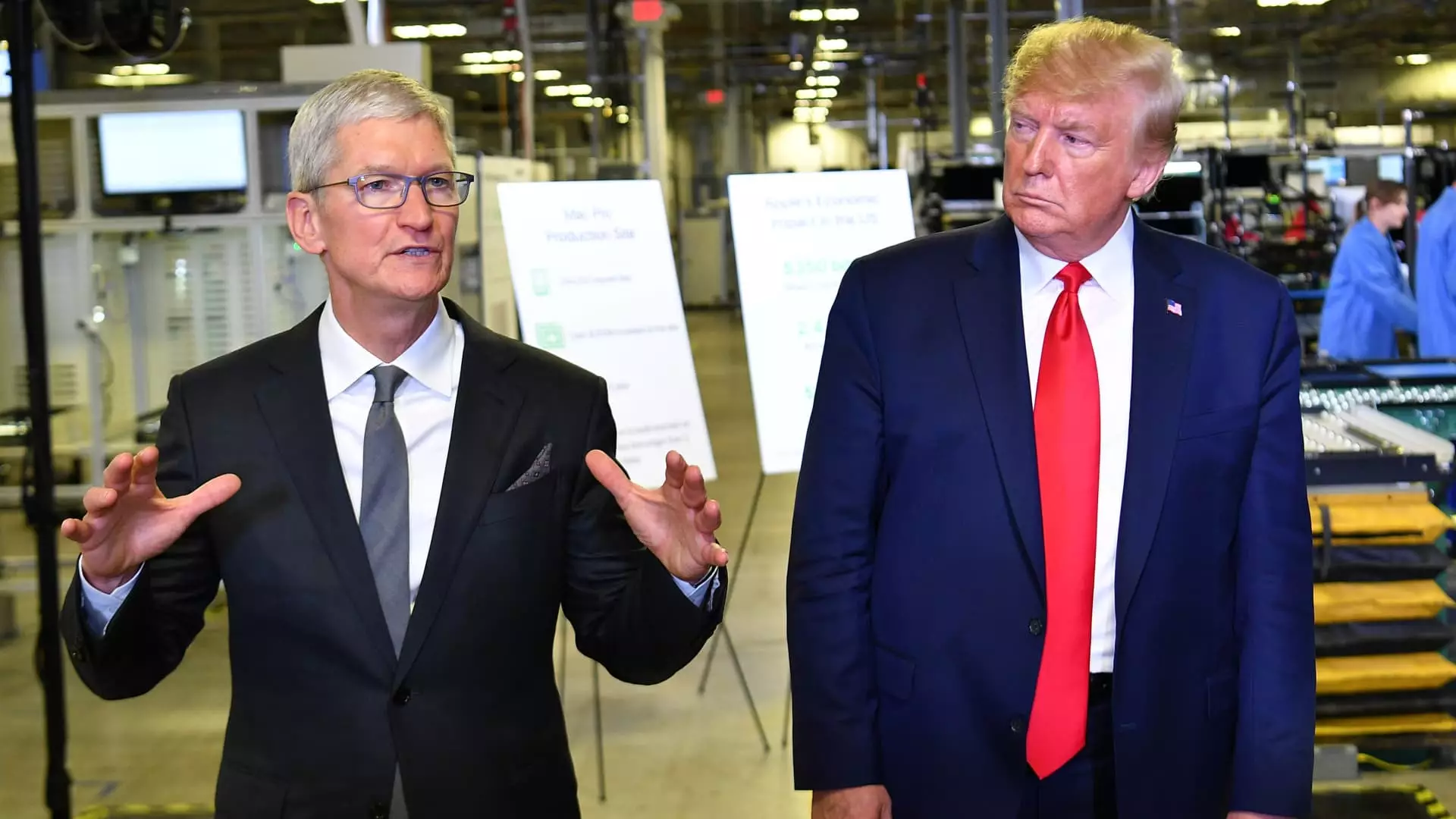The world of international trade is finely interwoven, where current events can shape not just corporate strategies, but consumer experiences as well. Recent statements by former President Donald Trump reflect an escalating tension between U.S. trade policies and companies like Apple, who find themselves navigating complex manufacturing landscapes. Trump’s assertion that Apple must manufacture iPhones within U.S. borders or face steep tariffs has sent shockwaves through the stock market, further showcasing the precarious balance between commerce and politics.
Trump’s Directive and Market Response
In a post on his social media platform, Trump unequivocally stated that Apple needs to produce its iPhones in the United States, hinting at a punitive tariff of 25% or higher on devices manufactured abroad. This ultimatum is not just political rhetoric; it triggers real fears among investors. Following the announcement, Apple’s stock plummeted about 3% in pre-market trading. This instant reaction from the market reflects deeper anxieties about future pricing strategies and demand fluctuations that may arise if Apple is forced to retrain its manufacturing initiatives.
Apple’s production strategies have naturally gravitated towards China, where labor costs are lower and factories more adept at high-volume assembly. However, a significant shift is already in motion, with Apple moving some production to India, a decision influenced by a burgeoning favorable trade relationship between the U.S. and the Indian government. An analysis by financial experts indicates that the cost of manufacturing in the U.S. could increase the price of the iPhone to nearly $3,500, skyrocketing from its current market price of around $1,000. Such a dramatic price increase could alienate a significant segment of Apple’s customer base.
The Stakes of Manufacturing Decisions
The stakes of where iPhones are made extend far beyond production. They underline a larger theme of America’s trade strategy and the intense scrutiny on corporate behavior. Trump’s recent rhetoric appears aimed not just at Apple, but as a broader statement to industries that have benefited from globalization. His recent meetings with Apple CEO Tim Cook, previously marked by collaborative discussions about American investment and job creation, are now clouded by urgent demands and pressure to recalibrate manufacturing strategies.
Additionally, this ongoing tension compels Apple to balance shareholder expectations with political pressure. The company recently committed to a staggering $500 billion investment aimed at U.S. development, signaling its intent to bolster American manufacturing. Yet, despite this dedication, the company still braces for a potential $900 million in tariffs this quarter alone, which threatens to alter product pricing and profitability.
Trade War Ramifications and the Future of Apple
Trump’s statements on tariffs are emblematic of a broader context that influences not only the tech industry but the economy at large. His previous tariff threats during his first term exemplified how markets can be impacted by unpredictable policy shifts. The fact that Apple has been targeted singles it out as both an influential player in the global marketplace and a symbol of American innovation. But while tariffs may aim at protecting domestic interests, they risk alienating international customers, which could ultimately affect retail demand.
Moreover, Trump has extended his tariff discussion to include a 50% levy on European Union products, suggesting a wider trade struggle is looming. As economic conditions remain tentative, Apple must pivot quickly to navigate these tumultuous waters. This can be seen as both a challenge and an opportunity—forcing Apple to reflect on its supply chain and perhaps invest even more heavily in negotiating favorable terms with manufacturing partners globally instead of solely focusing on U.S.-based production.
The Larger Implications for International Trade
The implications of Trump’s comments resonate far beyond Apple. They highlight the reality of an American consumer landscape increasingly at odds with the global supply chain. While the desire for domestic manufacturing and job creation is admirable, these knee-jerk demands can negate the efficiencies and realities of global commerce. Companies like Apple, which thrive on international trade networks, must consider the ramifications of operating in a highly politicized environment.
The ongoing narrative surrounding tariffs, U.S.–China relations, and corporate integrity are poised to shape the future of technology firms. As the gridlock in trade continues to evolve, industries will need to adapt, innovate, and, perhaps most critically, remain engaged in global dialogues that invite collaboration rather than isolation.

